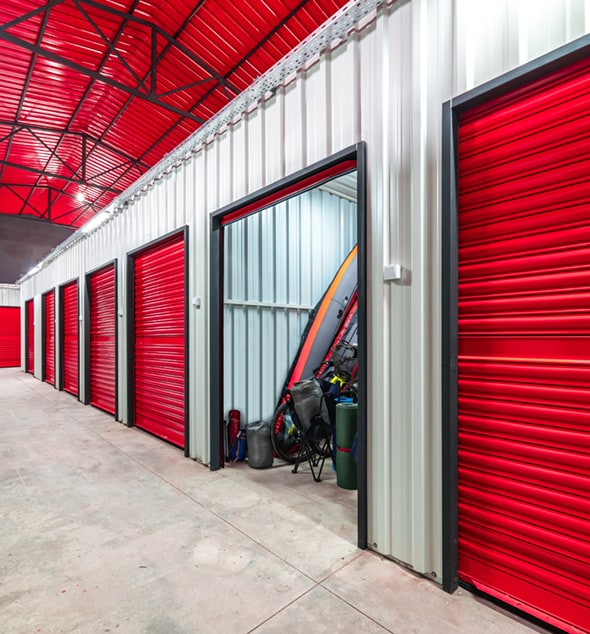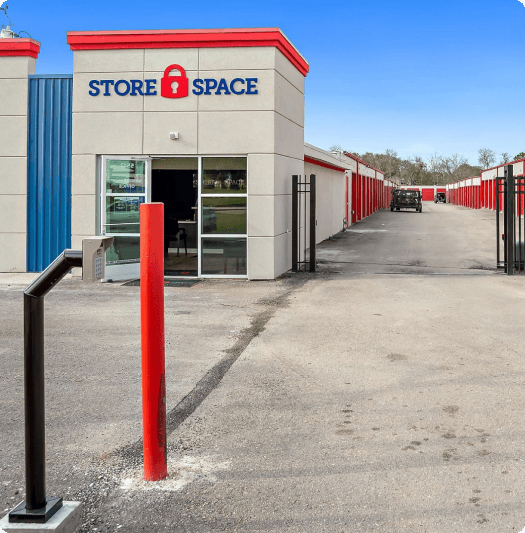Condo Living: Is Downsizing to a Condo Worth it?

So, you’re thinking about the ins and outs of condo living and the big question on everyone’s mind is if downsizing to a condo is worth it.
Of course, if the answer was “yes” for everyone, then everyone would already live in a condo. If the answer was “no,” then why would condos even exist?
Instead, let’s look at some of the reasons people might be looking for a condo, as well as the pros and cons of condo living. As a bonus, we’ll even give you some tips on managing your space if you do choose the condo life!
Whether you’re looking to make your first purchase and become a home buyer, you’ve finally gotten the brood graduated from college and are ready to downsize, or you’re somewhere in between, there are a number of reasons that condos can be the right choice. There are many benefits to downsizing, especially to a low cost condo. Read on and, hopefully, you’ll be closer to your decision by the end of this article.
A brief history of the condo
So, what is a condo? When most people think of condos, they envision an apartment-like building with the word “condo” following the name. Not wrong, for the most part, but there is a key difference between an apartment and a condo.
Graystone Manor, built in 1960 in Salt Lake City, is considered the first condominium complex in the U.S., and was completed shortly after Utah adopted a state Condominium Act.
—Graystone Condo
Basically, a condo is a building divided into units that are separately owned, but with common areas that are jointly owned. That’s unlike an apartment, in which the living area is leased. The key to condominium arrangement is a homeowner’s association that jointly owns and manages the common areas.
The concept of the condo has been around since Babylonian times. In fact, the word “condominium” is a word invented by combining the Latin “con” (together) + “dominium” (dominion) to mean “joint dominion.”
Even though the concept is old, laws governing condos didn’t really start to take shape in the United States until the 1960s. What Americans have come to think of as traditional condos really started in Puerto Rico, then moved into South Florida, where the concept really took off.
There are other real estate properties similar to condos, such as townhomes, duplexes, and such, but the differences are subtle, especially in terms of management, maintenance, and other laws and protections.

Why consider living in a condo?
Condos make a great alternative to apartments for people who are just looking to get into their first home, or for empty nesters ready to downsize from a single-family dwelling. Of course, they’re also great for anyone looking to continue the apartment lifestyle but wants the added benefit of growing equity rather than just paying rent.
There are a couple of key reasons that people consider living in a condo: price, convenience, upkeep, size, and ownership, just to name some of the biggies.
Price: Are condos cheaper?
For the most part, a condo is going to be cheaper than a single-family home. Here’s why: First, a condo is usually smaller with less square footage, no basement, fewer bedrooms, etc. Second, a condo has no yard to worry about, either.
A lower price also equates to a lower down payment, making it easier for first-time buyers to get into a condo. True, there are HOA fees associated with virtually all condos, whereas not all single-family homes are in an area with HOA fees.
Keep in mind that there are significantly more single-family homes in the United States than condos. For instance, in 2020, the National Association of Realtors documented nearly 10 times the number of single-family home sales versus condo sales (5.6 million vs. 578,000).
Is upkeep less in a condo?
One of the prime selling points of condo life is that the HOA is responsible for exterior maintenance. This is one of the main draws for retirees, who no longer need to worry about mowing and landscaping, shoveling, painting, or other similar tasks.
This freedom comes at a price, a.k.a., HOA fees. Typically, this is a monthly (or quarterly) fee separate from the mortgage payment that goes into a general fund for the entire property. The HOA is then responsible for handling the day-to-day maintenance of the grounds, as well as major exterior renovation projects and the like. Roof repair, exterior painting, grounds maintenance, repaving and so on should all be addressed through the HOA fees each owner contributes to.

What can you expect from condo life
For young professionals just starting out, condo life probably isn’t that much different than apartment living. For empty nesters, though, a condo community usually represents a huge change in lifestyle.
Many condo complexes offer a wide range of upscale amenities that just aren’t feasible in a standard single-family home. Especially in crowded urban areas, condos tend to offer a lot of perks, such as workout rooms, pools, common gathering areas, banquet rooms and much more.
Condos can be a great place to meet people. Especially those catering to the retired crowd but sometimes for young professionals, condos will also have group outings, socials and other events to bring neighbors together.
What are the advantages of living in a condo
As previously mentioned, condos are an attractive alternative to apartments. Here are some of the “pros” to living in a condo versus an apartment or single-family home:
- Price — condos are generally cheaper than single-family homes.
- Equity — owning a condo builds equity, which effectively helps build wealth.
- Lifestyle — many condo communities provide activities and amenities that cater to the owners, such as pools, workout rooms, group activities, socials and more.
- Location — many condos are in urban areas, putting owners closer to nightlife, activities and the like.
- Less maintenance — the HOA is responsible for exterior maintenance and grounds upkeep, removing the burden of lawn mowing, shoveling and painting from the owners.
What are the downsides to living in a condo?
There are some notable downsides to condo living that need to be taken into account. Here are some of the “cons” that should be weighed before adopting the condo life:
- HOAs — dealing with an HOA can be a challenge, especially if it’s run through a management company that tends to multiple properties, or has a lengthy approval process for capital projects.
- HOA fees — an added monthly expense that needs to be accounted for when budgeting expenses. One report suggests that HOA fees rise at a rate higher than home values increase.
- Children — most condos aren’t ideal for raising a child. Some retirement-style communities might even ban kids.
- Parking/Garage — while many condos will include parking for one or two cars, anything beyond that will usually require an additional fee for more garage space, if it’s even offered at all. Some condo complexes will actually sell a garage, however, they are an added expense and might not always be adjacent to your unit. Unless you are lucky enough to own/rent a garage space, working on a car or similar projects will be nearly impossible.
- Smaller footprint — condos, almost without exception, are going to have considerably less storage space than a home. No basement, no garage, no third bedroom; you get the idea. But that brings us to the next point …
Bonus: Where does self-storage fit into the equation?
Self-storage is a great adjunct to condo life. Since condos are inherently smaller than single-family homes, a self-storage unit can serve as a safe, secure place to store items that just don’t fit in the condo.
This is especially true for empty nesters, who are saddled with years of accumulated stuff from the kids, from their parents, etc. For active condo-dwellers, self-storage allows for a place to keep skis in the summer, golf clubs in the winter, and any number of seasonal items.
Many retirees also embrace RV life. With secure vehicle parking available at many storage facilities, owning an RV is not a hassle.
FAQs: Condo Living Tips
Is retiring to a condo a good idea?
Retiring to a condo can be a liberating experience for empty nesters who’ve long suffered through yard work and general upkeep on a single-family home. For those retirees who are OK with downsizing and plan to take advantage of the activities offered by a condo complex, it can be doubly inviting.
What are the cons of living in a condo?
HOA fees, the potential for mismanagement, and seemingly arbitrary rules are a couple of the cons to owning a condo. Add to that a smaller living area and it can be disruptive to some people.
Why do people choose to live in condos?
Lower cost means a lower down payment and lower payments, which are appealing to first-time buyers and empty nesters alike. Condos are also great for a streamlined lifestyle and are often located in urban areas.
Wrapping up: Is downsizing to a condo worth it?
For many people, the answer to the question, “is downsizing to a condo worth it?” is an unequivocal “yes!” No more grass to mow or snow to shovel? We’re in!
For others, condo life may take some getting used to.
A smaller living space presents a unique set of challenges, but don’t worry, we’ve written on that topic, too. Check out How to Maximize Space in a Small Apartment (just tell your brain to replace the word “apartment” with “condo”) to get 7 great tips for living in a smaller space.
We also explore some of the latest downsizing and tidying techniques in How to ‘Spark Joy’ Like Marie Kondo, which should help you make some critical decisions about what to keep (and not keep) when preparing to move into a condo. When it comes down to it, condo life is what you make it. And if self-storage is on your list of must-haves, then use our storage location finder to locate the Store Space facility nearest you!







